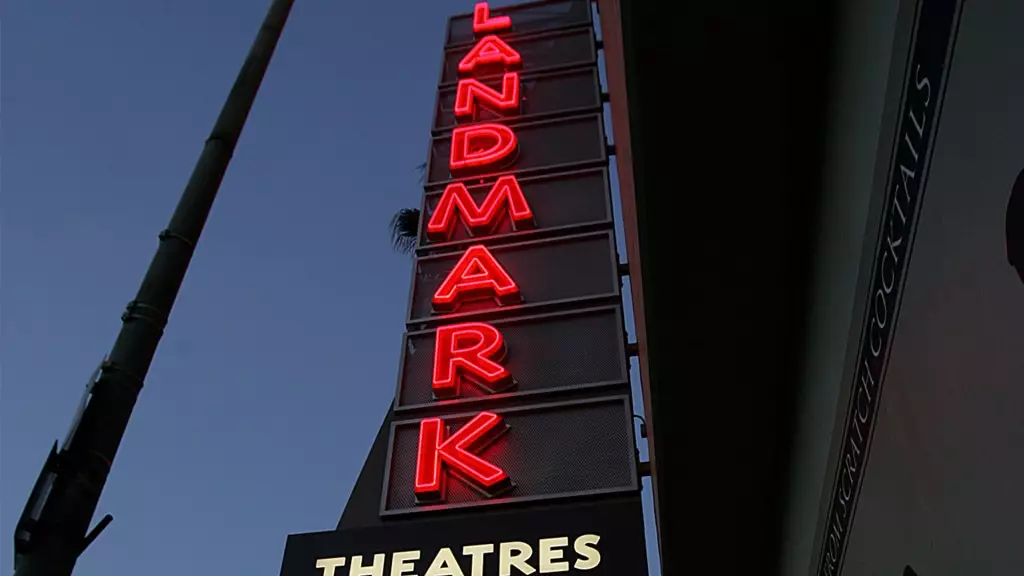The recent foreclosure auction highlighted a critical juncture in the landscape of independent cinema and property ownership as Creditor Fortress emerged as the sole bidder for several properties previously owned by notable real estate investor Charles Cohen. Specifically, Fortress’s successful bid of $5 million for Curzon, a prominent arthouse theater chain and distributor in the U.K., raises questions about the future of both the theater chain and the general direction of cinema ownership in today’s challenging market.
The absence of any competing bids for Landmark Theatres suggests a troubling sentiment that the independent film distribution community recognizes as part of a broader trend. Essentially, this situation underscores the precarious nature of smaller cinema chains grappling with systemic issues that predate the pandemic but were undoubtedly exacerbated by it. While Cohen’s assertion that “business as usual” would continue is certainly hopeful, the reality on the ground appears to paint a different picture rooted in financial instability.
Cohen’s tenure with Landmark Theatres, which began in late 2018, has faced scrutiny from industry insiders, many of whom argue that his management decisions—ranging from insufficient investment to a pivot toward wider releases—have ultimately diminished the brand’s stature. The shuttering of key locations, such as the highly revered Landmark LA, only solidified perceptions of mismanagement. This rapid decline in profitability is troubling, especially when considering that the arthouse model thrives on nurturing niche audiences rather than catering to broader, mass-market tastes.
In this competitive environment, the struggles of Landmark serve as a case study in the consequences of inadequate investment and strategic misalignment. The production and distribution of independent films require a delicate balance of financial acumen and market sensitivity—qualities that some believe have been overlooked under Cohen’s leadership. Such missteps not only jeopardize individual properties but also carry ramifications for the entire arthouse sector, which relies on such venues for the distribution of eclectic films that often challenge mainstream narratives.
Creditor Fortress’s strategic acquisition of Curzon indicates their intent to stabilize and potentially revitalize the brand moving forward. With a fresh influx of capital and management oversight, the future of Curzon could veer dramatically from its recent past. Fortress originally lent Cohen $534 million, with the expectation that important properties, including Landmark and Curzon, would be profitable investments. When Cohen defaulted, Fortress had little choice but to act decisively.
The tension between lifting struggling cinema chains out of financial distress and the necessity of maintaining their cultural relevance remains a crucial dilemma. Fortress’s bid not only protected their financial interests but may also pave the way for progressive operational changes at Curzon. Nevertheless, the lingering question persists: can Fortress emerge as a benevolent owner committed to nurturing the independent sector? Or will financial motives overshadow the rich tapestry of diverse voices that independent films represent?
This auction and the associated turmoil raise essential questions about the sustainability of independent cinemas in an age marked by consolidations and shifting viewing habits. Although the effects of COVID-19 were indeed catastrophic for many theaters, one must ask if those struggles were merely the tipping point for existing vulnerabilities. The financial results reported by Fortress following Cohen’s disclosures—Landmark’s net loss of over $14 million and Curzon’s loss of $8.5 million—prompt a reevaluation of how such businesses are structured and funded.
As Fortress consolidates its power and sets out to recuperate its investment through strategic decisions, stakeholders in the film industry must remain vigilant. Collaboration and investment within the independent cinema community will be pivotal in resisting the market pressures threatening the diversity and accessibility of arthouse film distribution.
While the future of Curzon may hold promise under Fortress’s stewardship, it remains imperative for both stakeholders and audiences to advocate for the qualities that define independent cinema. The limpid flow of creativity, innovation, and unique individual narratives thrives best in environments explicitly designed to support rather than stifle them. As this moment serves as a reflection point, an engaged discourse must carry the industry forward into new epochs, finding solutions that honor the independent spirit that has always driven independent cinema.

